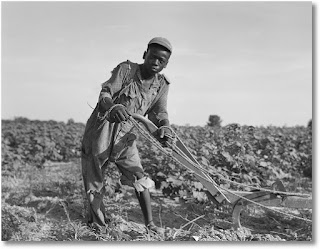Of Mice and Men
John Steinbeck (1902-1968)
“(A writer) is charged with
exposing our many grievous faults and failures, with dredging up to the light
our dark and dangerous dreams for the purpose of improvement.”
—John Steinbeck, Nobel Prize Acceptance
Speech 1962
Essay
Question: How does Steinbeck use characters in this novel to present his view
of prejudice and bias? Considering the
bleak way the novel ends, what do you think Steinbeck is saying about a society
that allows injustice, hatred and oppression? Explain how the novel reflects
Steinbeck’s quote, above.

This small classic novel of the struggles of the common man is a plea for justice. Published in 1937, it perfectly illustrates Steinbeck's own calling to "expose our many grievous faults and failures, with dredging up to the light our dark and dangerous dreams for the purpose of improvement." The novel's simple characters vividly express the suffering of isolation, fear, desperation and hopelessness of common folks crushed by issues of poverty, racism and lack of social support for the elderly and disabled. While the novel reveals the power of dreams to provide comfort and strength, it also shows the cruelty that happens when we have a society that allows civil injustice and oppression. The humble dream of a farm where labor could end after eight hours, where one's harvest was the fruits of that labor, where the elderly and disabled and discarded members of society were given dignity and purpose, a place of safety and shelter, where the innocent are not harmed and a place where they could enjoy the presence of family is a dream of salvation for the people and for the nation.
Of the many biblical allusions Steinbeck's uses, none rings so poignantly as the passage that would have been familiar to his mostly-Christian audience, the passage from the Book of Matthew known as The Judgment of the Nations. When asked who will go to heaven, Jesus responds that they who care for the sick, the poor, the hungry, strangers and those in prison -- the lowliest members of society -- are the ones who will be blessed. In 1939, our nation had far to go to achieve salvation. Perhaps these qualification of what makes a society noble should be held as a goal for all leaders, or who aspire to be leaders of our nation in the coming election year. In the end, this small novel, Of Mice and Men reveals that when a nation discriminates against the least of its members, it destroys us all. The murders of three civil rights "Freedom Riders" in 1964 is just one small example of how unfettered hatred has no boundaries.
John
Steinbeck wrote about poor, oppressed people and their noble plight and
struggles against impossible odds. The
setting for many of his works was the Great Depression in the United States Midwest , where much of the food is grown in this
country. Many farmers lost the land that
was in their families for generations and migrated to California
During
the time Of Mice and Men was written,
our country had no social support systems for the poor and destitute. There was no Social Security to help older
people. There was no Welfare, Medicare or Medicaid. There were no laws to prevent discrimination
and racism, and there were few humane mental institutions for people with
mental disabilities. Labor unions were struggling to gain rights for workers,
and in Europe, the threat of war was on the horizon. Steinbeck also wrote: East of Eden, Winter of Our Discontent, Cannery Row, and The Pearl. He won the Nobel Prize for literature in
1962.






